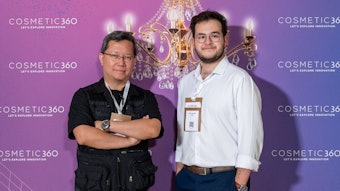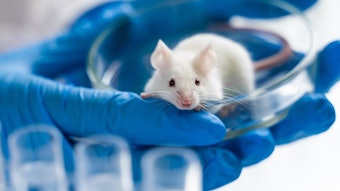Research in the cosmetics and pharmaceuticals industries, among others, has focused on developing peptides to mimic biological effects. Their identification and synthesis can be a timely and expensive barrier but a new Pepchipomics project, supported by the Seventh Framework Program for Research and Technological Development (FP7) of the European Union, could dramatically change this.
According to a report by Phys.org, Pepchipomics is aimed at synthesizing and reading high-density peptide microarrays, resulting in a new high-throughput platform that integrates peptide synthesis, detection and analysis at an unprecedented scale. This peptide microarray technology can reportedly synthesize two million different peptides on a slide the size of a stamp, which is enough to express the entire human proteome as overlapping peptides.
Coordinator of the project, Søren Buus from the University of Copenhagen, explained that this technology allows for the representation of both large assemblies of proteins or smaller assemblies, even single targets, in great detail and using many variants of the peptide of interest. Scientist and industry can now use exhaustive peptide-based approaches in their search for targets of interest.
According to the researchers, the next goal is to integrate the peptide microarray technology with label-free technologies that detect the interaction between the peptide chip and other molecules in real time as well as the strength of the interaction. For the cosmetics industry, this could mean a powerful option for the development of advanced anti-aging, anti-inflammatory and sensitive skin care treatments.










